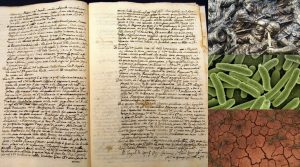In their efforts to study the long-term consequences of the climate crisis, researchers are becoming more and more interested in how past societies dealt with the challenges of extreme weather events and changing climatic conditions. Aided by the growing digital availability of large historical datasets on various forms of human activity, researchers can now investigate long-term interactions between climate and society better than ever before. Historical data nevertheless require particular care and criticism. In a sense, we can think of historical data as the result of uncontrolled experiments from which a biased subset of results survives. Using historical data non-critically, therefore, can lead to misguided or even spurious conclusions that may become entrenched as accepted knowledge.

In this WIREs Climate Change review, an interdisciplinary team of economic and environmental historians demonstrate pitfalls in the content, use, and interpretation of historical datasets employed in research into the long-term effects of climate variability on a) human conflict, b) disease incidence, and c) agricultural productivity changes.
The authors show that historical source critique, temporal and geographical data critique, social contextualization, and use of up-to-date historiography are absent in the majority of relevant publications in leading academic journals, and particularly in the more influential ones in terms of field-weighted cited impact. The conclusions in these studies using historical datasets thus suffer from systematic biases, which may lead to spurious results that gain undeserved sense of reliability and authority in the literature.
The authors conclude their review by proposing three sets of interventions to overcome these problems. These include: a more critical and multidisciplinary collection and construction of new historical datasets; increasing the specificity and transparency regarding uncertainty and biases in the data; and replacing inductive with deductive approaches to study causality between climate and society. The review goes on to explain how this will improve the validity and robustness of interpretations on the long-term relationship between climate and society, and will ultimately enable a meaningful integration of history as a key component in any interdisciplinary endeavor to understand the long-term effects of climate change.

















